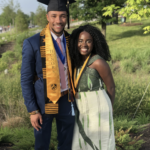
As a student Anna Gifty Opoku-Agyeman took notice of something missing in the field of academic economics—people who looked like her.
Since then, this Forbes 30 under 30 star in Boston has worked to shed light on the harrowing diversity issues in economics while carving out a space for economists of color, specifically Black women, to thrive. But she’s not carrying on this work in a vacuum. Inspired by and connected with other aspiring economists at UMBC through Sloan UMBC, Opoku-Agyeman ’19, mathematics, and others leveraged the resources in that scholars program to uplift underrepresented voices in economics—including their own.
In 2017, UMBC received a $1.3 million grant from the Alfred P. Sloan Foundation in an effort to diversify the field of economics by creating interventions from the undergraduate level through the post-baccalaureate (post-bac) level. The program was originally intended to conclude in five years but has since been extended to support UMBC students in post-bac programs through 2025.
“The Sloan program is a really good signal to the economics space that UMBC is in the business of producing Black economists,” says Opoku-Agyeman. “It also provided me with community among the next generation of Black folks coming up in the economics field.”
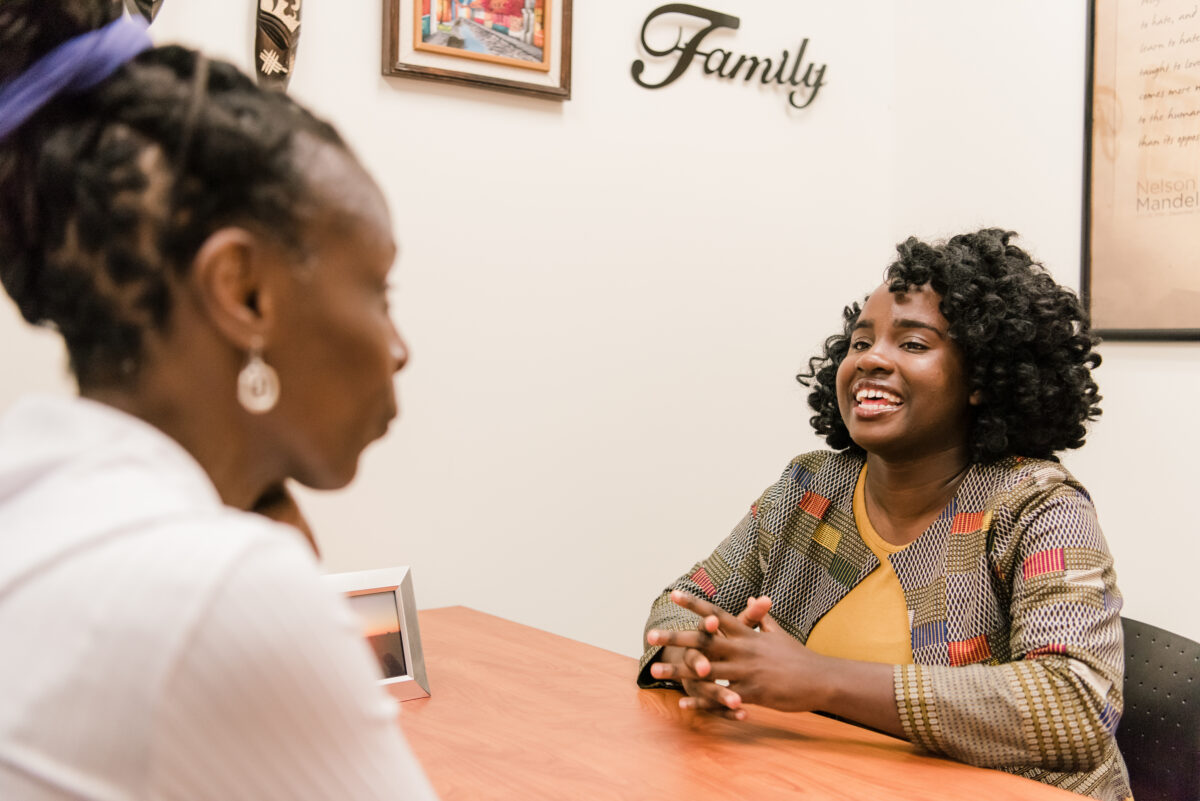 Anna Gifty Opoku-Agyeman (right). (Marlayna Demond ’11/UMBC)
Anna Gifty Opoku-Agyeman (right). (Marlayna Demond ’11/UMBC)
Program scholar Yetunde Oshagbemi ’23, mathematics, benefited from the material and financial resources from Sloan, but also credits the personal connections she developed. In 2022, Oshagbemi participated in the Exploring Career Pathways conference organized by The Sadie Collective—a nonprofit co-founded by Opoku-Agyeman that addresses the pipeline and pathway problem for Black women in economics and related fields—and the Federal Reserve Bank of Chicago.
“There are many things I wouldn’t have known without a program like Sloan,” says Oshagbemi, now a first-year research assistant at the Federal Reserve Bank of Chicago. “It introduced me to other students who were on a similar path and people like Anna who can possibly guide me through my research experience.”
Opoku-Agyeman, who is now a third-year Ph.D. student studying public policy and economics at the Harvard Kennedy School, shares the importance of why she stays connected to UMBC and the Sloan program.
“I want to ensure that those who come after me have a much easier time getting through the economics space. Fellow graduates and I have helped to inform how the program can best serve students,” she says.
Developing the Next Generation of Academic Economists
“It’s important to do this work at an early stage—it’s often a path that students haven’t thought about when they enter college,” says David Mitch, principal investigator of the Sloan program.
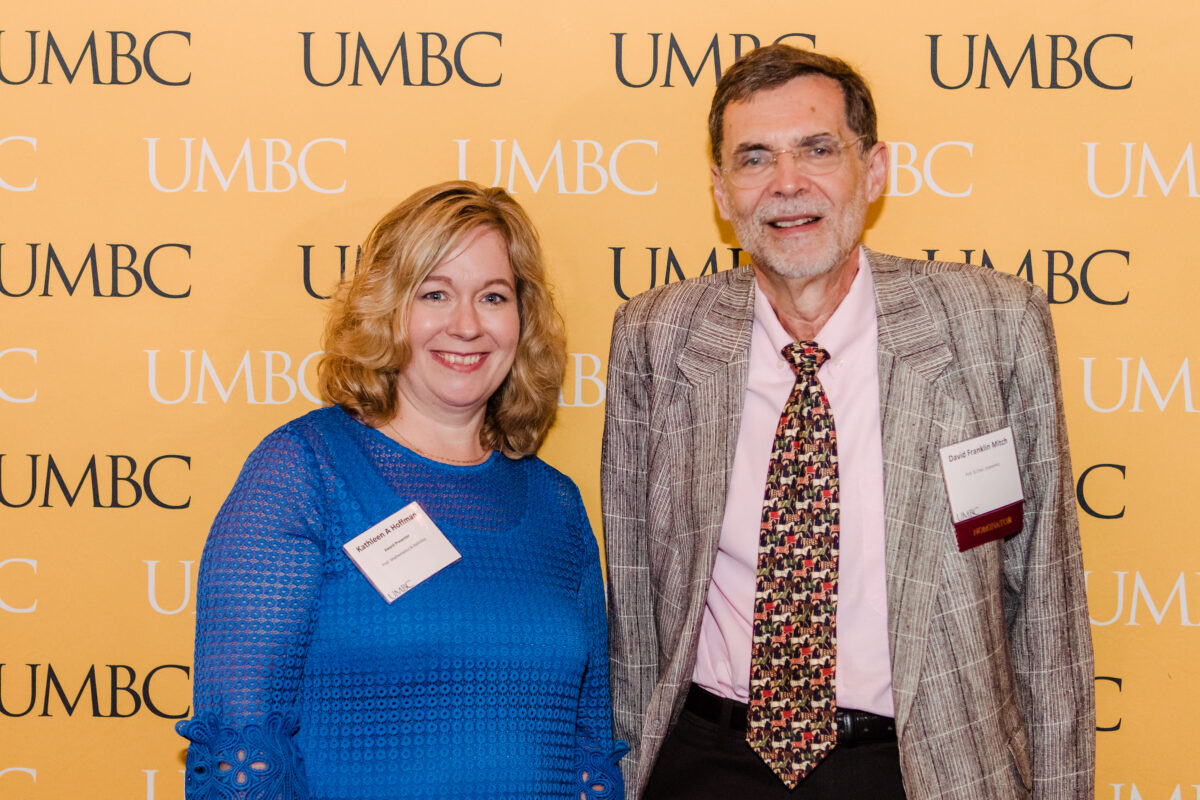 Kathleen Hoffman, professor of math and statistics, and David Mitch at the 2018 UMBC Alumni Awards (Marlayna Demond ’11/UMBC)
Kathleen Hoffman, professor of math and statistics, and David Mitch at the 2018 UMBC Alumni Awards (Marlayna Demond ’11/UMBC)
Mitch, department chair and professor of economics, explains that when it comes to professions in his field, students often think about careers in finance or the stock market. The program educates students about the academic side of economics careers and provides participants with mentoring, scholarships, research experiences, and financial support in research programs specializing in doctoral preparation. To date the program has placed six students in post-baccalaureate programs—one more than the original goal—with a further 17 students participating in various program activities.
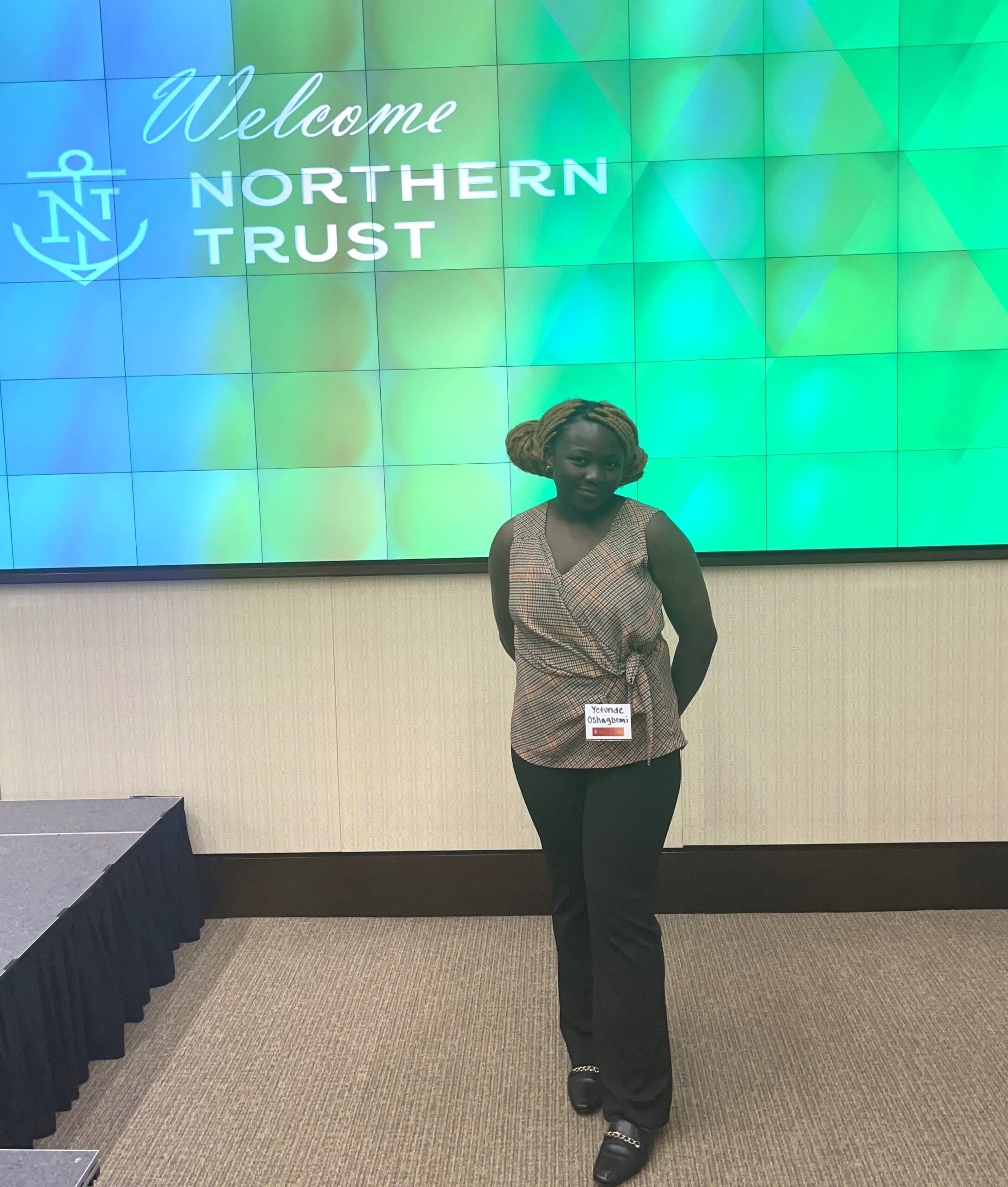 Yetunde Oshagbemi. (Photo courtesy of Yetunde Oshagbemi)
Yetunde Oshagbemi. (Photo courtesy of Yetunde Oshagbemi)
“There’s this route that involves graduate work in economics through all sorts of social impact areas such as health, the environment, education, and upward mobility of minority groups,” Mitch shares. Much of this work “deals with policy issues that could benefit from somebody with an underrepresented background.”
With support from the Sloan program to cover travel, lodging, and conference fees, Oshagbemi developed her research skills with internships at the University of Chicago, Brown University, and Howard University.
Growing up in Lagos, Nigeria, and then emigrating to the U.S. in 2010, keeping in mind the economic potential of her home country helped to influence Oshagbemi’s goal of addressing microeconomic issues of gender inequality and wealth disparities in sub-Saharan Africa.
Sloan UMBC, says Oshagbemi, “levels out the playing field for us, teaches us how to apply for opportunities, and what to do to be prepared to enter the field.”
Expanding the Economics Pipeline
Despite growing up with parents working in the field of economics, Sondheim Public Affairs Scholar Brevin Franklin ’22, economics and mathematics, wasn’t familiar with academic economics—teaching and researching—before coming to UMBC.
“The program exposed me to people doing economics research in post-bac programs and those who were in Ph.D. programs,” says Franklin, who is now a second-year economics scholar at Harvard University, supported by the Sloan grant. “It gave me a sense of whether I would like doing any of those things in the future.”
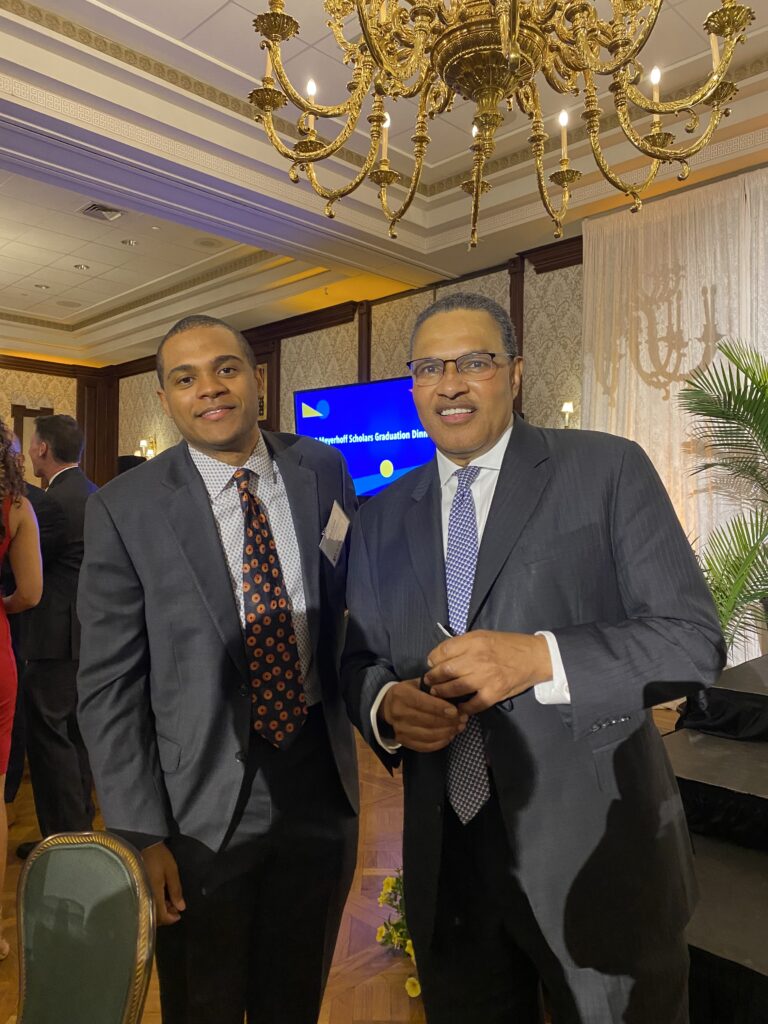 Brevin Franklin and UMBC President Emeritus Freeman Hrabowski. (Photo courtesy of Brevin Franklin)
Brevin Franklin and UMBC President Emeritus Freeman Hrabowski. (Photo courtesy of Brevin Franklin)
Myles Ellis ’19, mathematics—who was also a post-bac economics scholar at Harvard—says the Sloan program encouraged him to take part in opportunities not initially aware of.
He’s now a third-year Ph.D. candidate at Brown University with a major concentration in econometrics. Ellis’ research focuses on how mistrust of institutions can shape the financial decision-making of Black households and how that might contribute to the racial wealth gap.
“Seeing people in this space that look like me is really important,” Ellis explains. “It’s important for this pipeline to be established because we need more Black and brown faces to shed light on what’s going on [in the world] through research, especially in this academic space.”
Oshagbemi, Franklin, and Ellis all referenced the significance of the mentorship they acquired as Sloan program scholars, pointing to guidance from the program’s coordinator, Ivanna Abreu.
“Ms. Abreu helped me practice for my internship interviews before applying and has been a great help with keeping us on track by checking in on what our top [research program] choices are and how we prepare for them,” says Oshagbemi.
Abreu was previously a program coordinator for UMBC’s Meyerhoff Scholars Program and says she admires the “hustle of STEM students” who come from underrepresented backgrounds.
“We make sure students have what they need,” says Abreu. “The program gives students the opportunity to really consider the economics field and to see themselves in it, as opposed to thinking about all of the stereotypes of economics. That’s the biggest thing we teach our students.”





